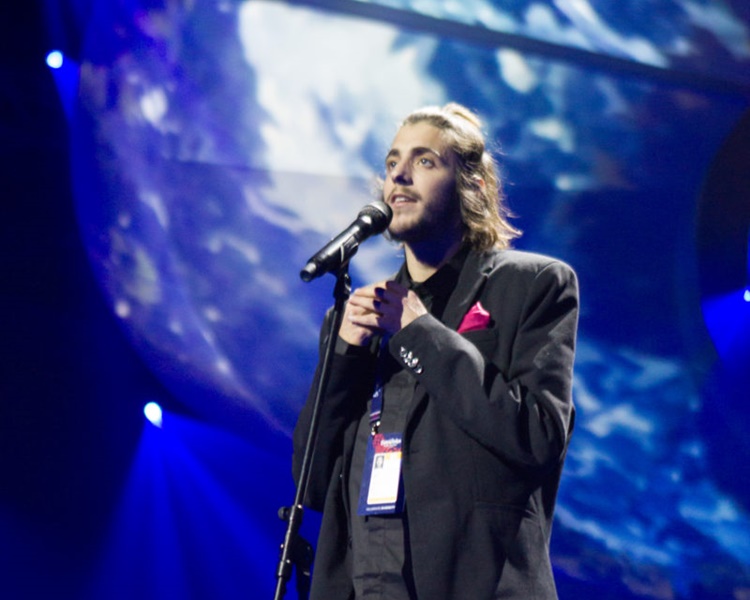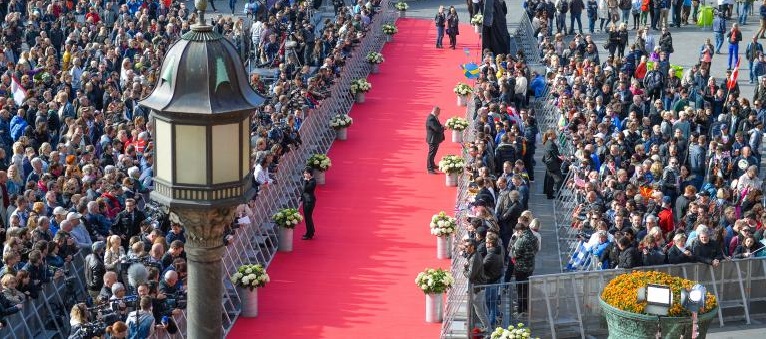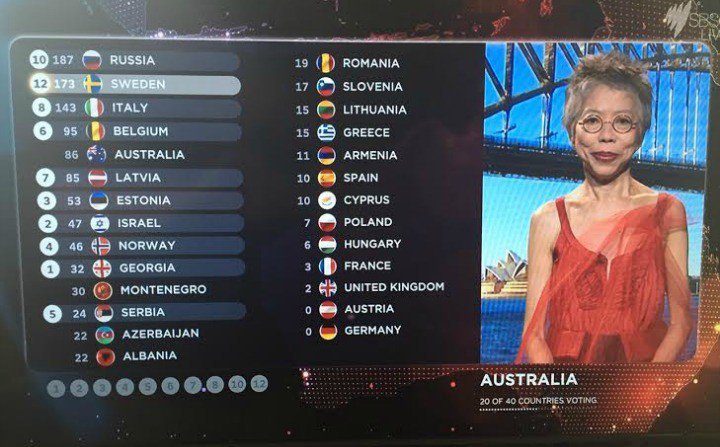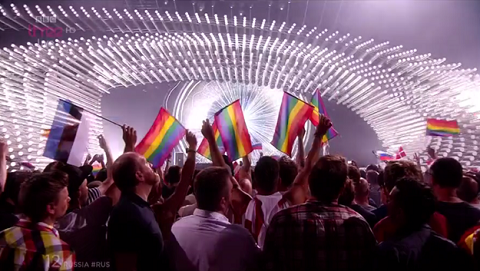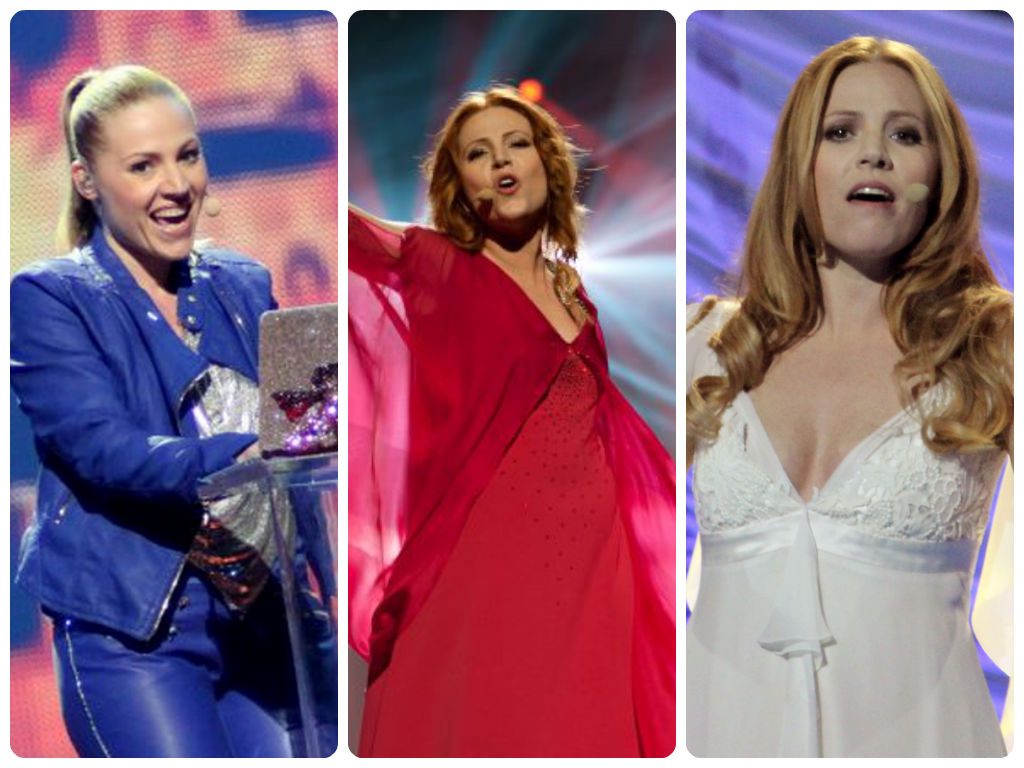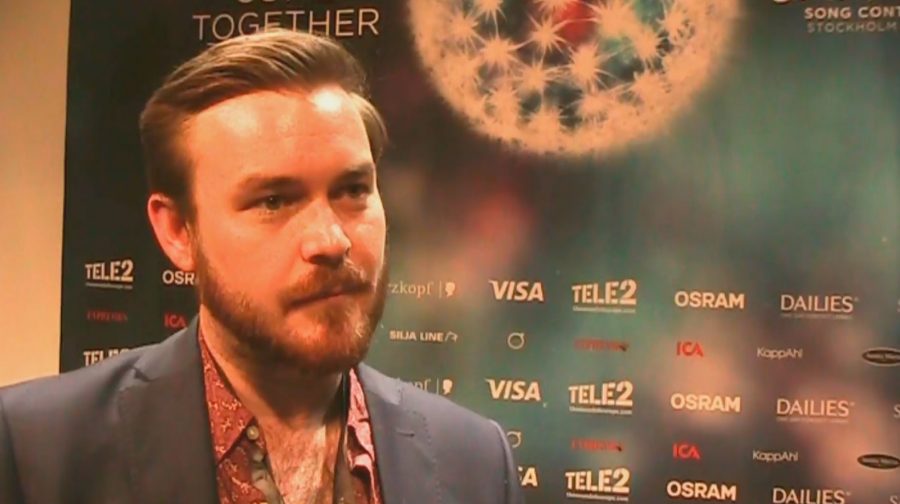Another year is over, another winner has been announced and another Eurovision hangover has begun to subside. This is a time of year when a number of people reflect on the competition that was and the one that is to come, so I thought I would share some insight.
In 2016 I was a member of the creative team for Iceland’s Eurovision entry and learned a great deal about the competition. Since then I have found myself answering lots of questions to Eurovision peeps about what it’s actually like to be there and how things really work during the largest song contest in the world.
I’ve narrowed this all down to 7 things many people probably didn’t know about the beloved contest. Keep in mind these thoughts are strictly my own and do not reflect on anyone I worked with in the competition at all. You may find them interesting, it may also mean I never work at Eurovision again but anyway here goes …
1. IT’S A MARATHON.
You’ve seen the three-minute performance on the stage of the host country. There’s lights, pyrotechnics, wind and key changes. You love it or hate it or even make witty tweets about how awkward it sounded when the singer was trying to say ‘winner’ and it came out like ‘weiner’. It all happened in the blink of an eye but what you probably didn’t think about is how long ago the journey to that mispronunciation began. For many of the entrants it starts as much as nine months before. A number of the participating countries hold national selection competitions, a bit like mini Eurovisions. In Iceland this competition is held around February, but the eager hopefuls must have their songs in for selection around October. Once they’re into the competition, they have a few months to come up with their performance and then they compete. When we worked on ‘Hear them Calling’ for Iceland in 2016, the first meetings about how to present the song were in early December. It’s a strange feeling for all the team members to win the national selection, because there is literally almost no time to celebrate. As soon as we found out we were going to Sweden, we were quickly in meetings again to work out the next step. By the time Greta Salóme sang her first note in Stockholm, the core team had been working on the project for almost six months.
2. BUDGET BABY.
Each country pretty much foots the bill for their own performance and of course not every country has the same budget. The only thing when it comes to staging that is free is …. wind. Lights, projection, fire, pyrotechnics, all of that costs a lot of money. When you see a solo performer on the stage with very little bells and whistles, sometimes it’s a creative choice, but sometimes it’s because that’s what they could do with their budget. So think about that the next time you call a performance bland.
3. IT’S A BLOGGY BLOGG WORLD.
Back when I was a child and even into early adulthood (not revealing too much about my age here), there was almost nothing you could find out about the performances before the actual show. I remember that the closest I could get to knowing anything about what would happen was buying the CD and listening to the songs one by one. That has changed dramatically. Now when an artist has been selected to represent their nation at Eurovision it’s a bit like a presidential campaign. There’s not just the official concert, there’s party concerts in other countries to prepare. Each one comes complete with press, well I wouldn’t exactly call it that. I noticed at the pre-parties and the actual competition that the number of actual journalists was very small. The world of Eurovision is now run by bloggers.
As I stated above, these opinions are my own and do not reflect anyone I have worked with, but I noticed that everyone, in a way, is terrified of them. I found it peculiar watching seasoned performers pander to ‘Bob’ from ‘Erovisionfandom.org/jpeg’ a blog that probably gets one click a year. A number of the bloggers are uber fans who make the pilgrimage every year to the host country much like salmon spawning up-stream. Most of them are people who have an amazing joy for what this song contest represents. As a fan of Eurovision I quickly realised that I was not as much a fan as I thought. I remember a conversation I had with one of the delegates from Estonia. He too was Australian and asked me how I felt about finally working at the competition. I said I felt like a bit of a fraud. He asked why and I told him that before heading there I thought I was a super fan. Then I said, ‘but there are people here who can tell you what the backup dancer to the right of the performer for the Netherlands was wearing in 1973.’ His response, ‘she didn’t have a back up dancer.’
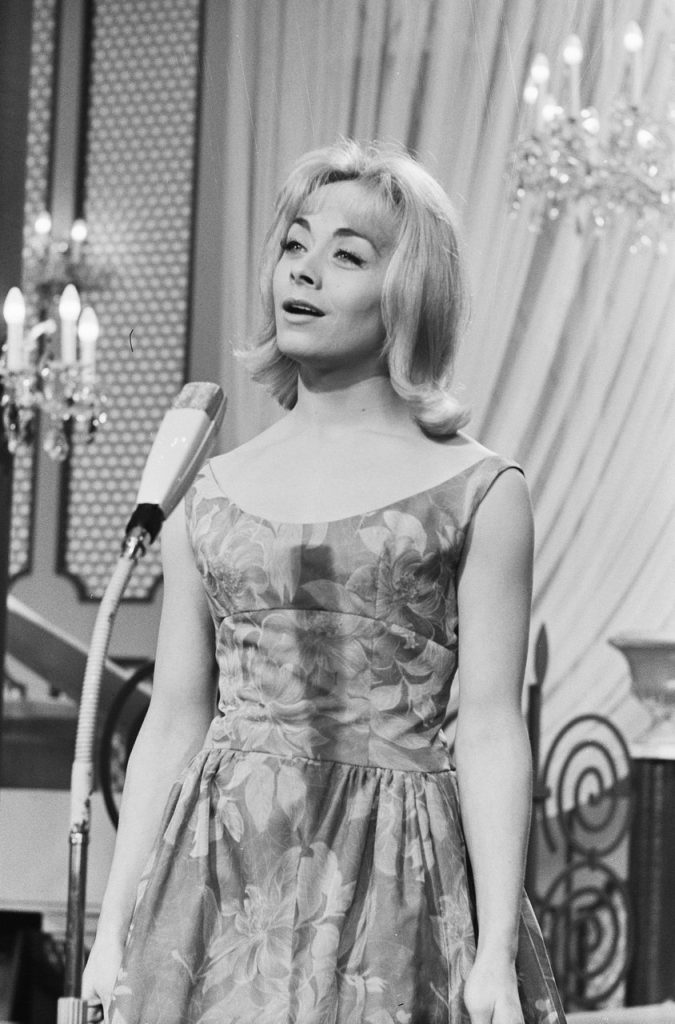
The bloggers hold so much power when it comes to the 24 hour news cycle we now live in. They can make or break the chances for a performer to get through to the final and most people in Eurovision land know it. This brings me to the unfortunate side of the bloggy blog world; the mean girls. There are some bloggers (who I will not name for legal reasons) who are just terrible people. You know, those people who were picked on in school (like most of us) but instead of dealing with their self-esteem issues in order to become self actualised adults, they put themselves in positions of power so that they can in turn bully others without actually realising they’re doing so. Yep these people sometimes have Eurovision blogs. I sat through countless interview sessions where I saw them ask energy filled questions about the acts and the message of their songs, telling the performer how amazing it all is. Then the next day in a vlog update, pulling it all apart, basically telling their viewing audience not to vote for that song.
The other negative side effect of the blog machine is that it’s not really informed journalism. Facts aren’t really checked and sometimes information is just plain wrong. I was once video interviewed backstage. They asked me what my involvement with the show was, I answered and then they wrote an article stating that I said that I was pretty much the only person doing anything. The weird part about that was they also posted the video where I didn’t say that.
The bloggers are also invited into the dress rehearsal which I find weird. I guess it makes for great ‘media’ buzz, but sometimes it can be reported drastically wrong. In 2016 during the first dress rehearsal, the TV station of the host country used incorrect graphics and cues for us because of time constraints. Our entire team knew about that and decided to use the rehearsal to just focus on everything else. The bloggers were present and in turn they reported to millions of fans that the Icelandic performer’s choreography was completely off and that they were disappointed in how the performance had translated from the Icelandic stage to the main competition. If they had asked any of the team, we would have corrected them but they didn’t. The result was an immediate shift in the betting odds against Iceland.
4. BLOCK VOTING AND TALL POPPIES.
It’s never a surprise when Greece votes for Cyprus or Belarus votes for Russia. So many people think it’s because they want to support their neighbouring country. I’m not saying that doesn’t happen but often we forget what it’s like to live in a particular area. If you live in Greece, you’re probably going to be listening to similar music to those in Cyprus. It’s what you’re used to. When you’re not allowed to vote for your own country and there’s a song that tickles your musical senses culturally it’s kind of a no brainer. Another effect I knew nothing about until I worked in the competition was what I call the tall poppy effect. I grew up in Australia, a nation that loves the underdog. I’ve often said the easiest way to become successful in Australia is to not really look that successful. This is because of Tall Poppy Syndrome. The innate need to support those that you feel need the help and cut down (in a manner) the tall poppies so that the others can enjoy some sunlight. In the competition there isn’t really a cutting down of the poppies but there is sometimes a heightened need to support those who you feel might not make the cut. You can only vote so many times. You have a selection of songs you love and in that selection, due to media coverage and the feeling that there are particular favourites world-wide, you make a decision. ‘Well that country is definitely going to get into the final, so they won’t need my help. I’m going to vote for the underdog.’ I believe this is in part responsible for those times when a country everyone thought would get through doesn’t and then the next day the internet isn’t happy.
5. IT’S A GAY SMORGASBORD.
I have never seen a larger congregation of gay men in my life. In each Eurovision there is a special pop up Euroclub. A club where all attendees can dance the night away to only Eurovision songs, while possibly getting the chance to brush shoulders with their favourite Eurovision stars. It’s also pretty much a gay bar. I can only imagine the amount of chlamydia and syphillis that is exchanged at a competition. I actually feel like there are possibly new STIs born at every competition. This years chlamydia I will call the Ukraine Strain. Never in my life have I opened grindr and seen literally 400,000 men within 20m of me. The night Iceland performed in semi final one in 2016 and didn’t get into the final, I retreated to my hotel room to shower and prepare to celebrate. I opened my grindr and was surprised to see a great deal of messages. Nowhere in my profile did it say that I was working with the Icelandic team, but up to 20 men had sent me condolence messages. My favourite was one that read, ‘Amazing work tonight, I’m so sorry you guys didn’t get through… wanna come cry on my dick?’
6. YOU CAN’T PREDICT ANYTHING!
Costume – Check
Amazing performance – Check
Flawless vocals – Check
Hundreds of thousands of people wanting you to get into the final – Check
None of this means shit at the end of the day. There are so many variables that it’s nearly impossible to predict how it will all go. I think many of us can say that from the start of the hype to the end of the competition we couldn’t have predicted Jamala would win. That’s part of what makes this competition so riveting to watch. The performers I’ve met who have got the most out of Eurovision are the ones who understand this and simply set out to get the message of their song across.
7. POST COMPETITION SUCCESS NOT GUARANTEED.
After what all the performers go through, we would like to think that Eurovision launches them into an amazing career stratosphere but it’s not always the case. Sometimes they just go back to their jobs. I can think of one performer in particular who went back to university and finished a pharmacy degree and has since not really performed. Sometimes their career is simply to be the only person in their country who is allowed to go to Eurovision (I’m looking at you Valentina – one day my love – one day). The truth is that those who manage to have a successful career after Eurovision usually work incredibly hard for it. Sometimes they have to spend years traveling all over the world to just do that one three-minute song people know them for, sometimes they have to completely reinvent themselves, and sometimes they just go home and get a day job again. There’s also thousands of other people in the competition not on the stage who go home and have to start over. Eurovision is a bubble, when you’re in it you can feel invincible, then when it’s over it can leave you feeling like you have no idea what to do next. For me, the most incredible feeling was watching graphics that were largely put together on my computer in my bedroom in Reykjavík on a screen in a massive arena, and knowing that it was also being watched on TV by 200 million people. I got home from the competition and then went back to work. I remember I was sent a message by a blogger asking what I was up to since the competition. I told him, ‘currently making burgers in a bar.’ His response was ‘Why?’ I told him that I have rent to pay and working in Eurovision is an amazing experience that is incredible to have on your CV, but it doesn’t mean something to everyone.
The Eurovision song contest taught me so much about what people are capable of when in a team. It was definitely one of the biggest highlights of my life to date and I wouldn’t change anything about it at all. Well maybe if I could, I would have tried to bang Douwe Bob – he did kiss me after all.
Main photo: A part of a photo of Salvador Sobral by © Roger Dewayne Barkley, EuroVisionary
Note: The opinions, beliefs and viewpoints expressed by the various authors and forum participants on www.gayiceland.is do not necessarily reflect the opinions, beliefs and viewpoints of the editorial staff of www.gayiceland.is or official policies of the editorial staff.

